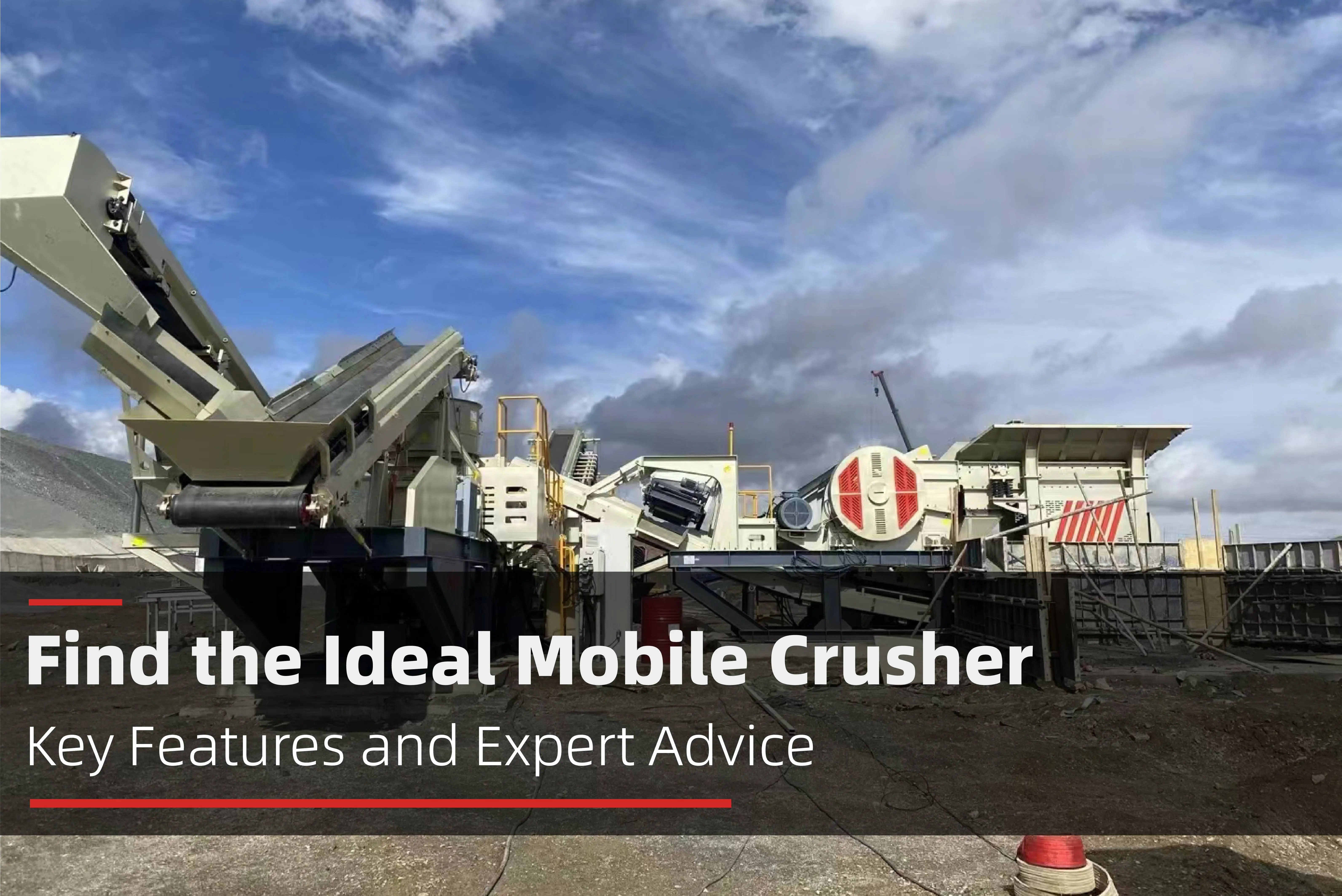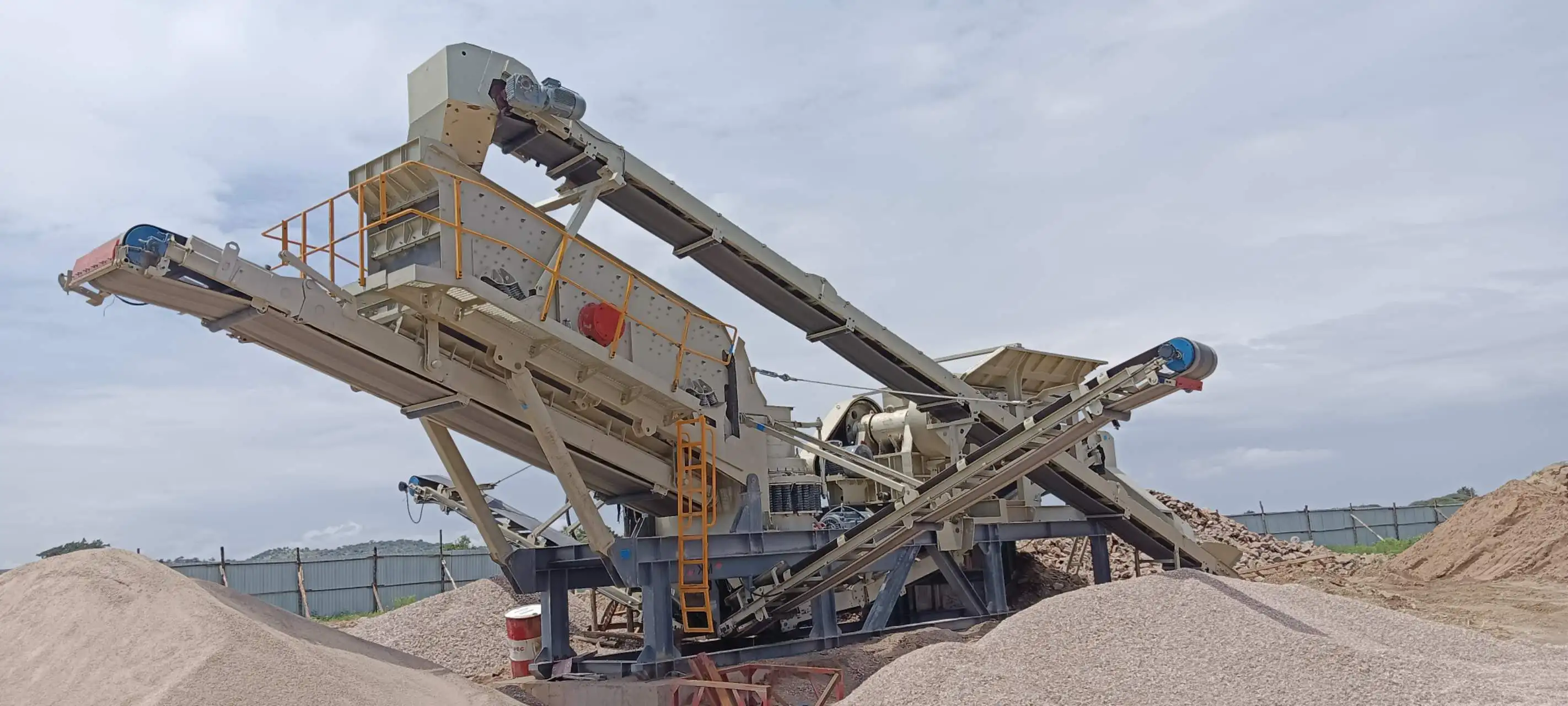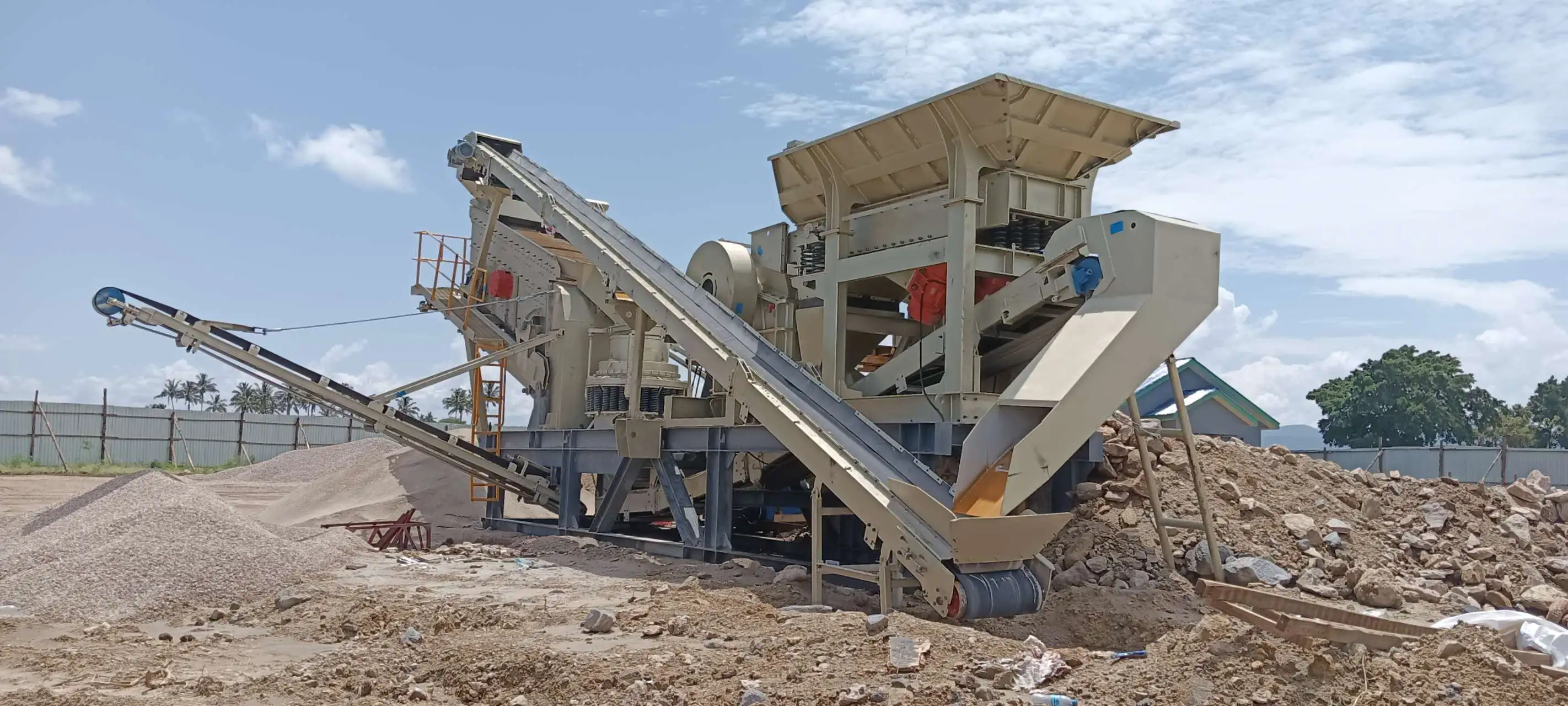
When it comes to heavy-duty crushing tasks, selecting the right equipment is crucial for efficiency and cost-effectiveness. Mobile crushers play an integral role in a variety of industries, such as construction, mining, and recycling, by offering a flexible, portable solution for on-site material processing.
These machines are designed to crush large volumes of rocks, concrete, and other materials in locations where stationary machinery would be impractical. Understanding the different models and their specific capabilities allows businesses to choose the most suitable machine for their unique needs. Whether it's for improving operational efficiency, lowering transportation costs, or ensuring long-term durability, selecting the proper equipment can significantly impact overall performance.
Crushing Capacity The machine’s ability to process material efficiently is essential. The crusher's capacity refers to how much material it can handle per hour, and this varies depending on the hardness of the materials being processed. For softer materials, a machine with lower crushing power may suffice, but for harder rocks, more robust machinery is needed to handle the increased strain.
Feed Size The maximum feed size the equipment can accommodate is an important consideration. This determines the initial size of the material that can be loaded into the machine, and it directly affects the efficiency of the entire crushing process. Larger feed sizes typically mean the machine can handle more material, but this might require more powerful crushing mechanisms to maintain optimal efficiency.

Output Size and Product Requirements Another critical factor is the final product size. Different operations may require different sized outputs, whether coarse or fine. The crushing unit must be able to adjust and produce the desired final product consistently, which is crucial for industries such as construction and mining where precise material grading is essential.
Portability and Mobility One of the defining characteristics of mobile crushers is their ability to be moved easily across different locations. Mobility is vital when projects involve shifting materials across large areas or across difficult-to-reach terrains. A more mobile design makes it easier to move the machine to various sites, reducing downtime and increasing productivity.
Power Source: Fuel vs. Electric Choosing between fuel-powered and electric-powered machines involves evaluating operational costs and availability of resources. Fuel-powered models might be better suited for remote locations where electrical power sources are scarce, while electric options are more energy-efficient and environmentally friendly for sites with reliable electricity access.
Material Type Crushers are designed to handle different material types. For example, equipment designed for gravel or limestone may differ from those intended for processing concrete or asphalt. Matching the machine’s design to the specific material being processed ensures the most effective and efficient operation.
Material Quality and Construction A key consideration when choosing equipment is the build quality. High-quality materials, such as advanced alloys or high-grade steel, help ensure the crusher can withstand the demanding nature of heavy-duty operations. Strong construction and corrosion-resistant materials are also essential for machines working in harsh environments.
Longevity and Reliability The durability of the machine depends on how well it is built and how often it needs repairs or replacements. Machines that are designed to handle high volumes of work with minimal downtime offer greater long-term value. The reputation of the manufacturer is an important indicator of the machine's overall reliability.
Warranty and Support A solid warranty and technical support system is crucial. In the event of breakdowns or performance issues, quick access to parts and service can minimize downtime and keep projects on track. Check what aspects are covered under warranty and whether the manufacturer offers comprehensive after-sales services.
Automation and Smart Features Modern crushing equipment comes equipped with automation systems that can adjust settings based on the material being processed. These systems enhance efficiency by ensuring the correct feed rate, optimal crushing settings, and consistent performance.
Remote Monitoring and Connectivity Many of today’s crushers feature remote monitoring capabilities, allowing operators to track machine performance, diagnose issues, and manage operational data from afar. This feature can drastically improve operational efficiency by enabling real-time adjustments and preventive maintenance.
Fuel Management Systems Fuel efficiency is a major consideration in operating costs. Advanced systems designed to monitor and optimize fuel usage help reduce operational expenses while maintaining the necessary power for demanding tasks.

Noise Reduction Construction and mining sites can be noisy environments. Machines designed to run at lower noise levels provide a more comfortable work environment for operators and can help comply with local regulations.
Dust Control Systems Crushers working in dry conditions can generate significant amounts of dust, which poses health risks and environmental concerns. Some crushers come with dust suppression systems, such as water sprays or misting systems, to reduce airborne particles and improve safety and compliance with environmental standards.
Carbon Emissions Electric-powered and hybrid models are becoming increasingly popular for their ability to reduce carbon emissions compared to traditional fuel-powered units. As environmental regulations become stricter, using equipment with a lower carbon footprint is not only beneficial for the planet but may also help with regulatory compliance.
Terrain Adaptability Mobile crushers must be able to handle a range of terrains, from steep hillsides to rocky surfaces. Machines designed to operate in rough environments will offer better stability and safety, reducing the risk of damage and ensuring smooth operation in challenging conditions.
Weather and Climate Considerations Whether it’s extreme cold, heat, or humidity, equipment must be suited to operate in varying climates. Certain machines are designed with specialized components that prevent freezing in cold weather or overheating in high temperatures, ensuring performance is not compromised regardless of environmental factors.
Corrosive Environments For operations near the coast or in humid conditions, it’s important to select a machine that is resistant to corrosion. Special coatings and rust-resistant materials can help protect the crusher and extend its life, particularly in areas prone to salty air or high humidity.
Choosing the right equipment involves evaluating a range of factors from capacity to mobility, environmental impact to technological features. It’s important to balance your project’s specific needs with the capabilities of the equipment. Whether you need a compact and portable unit for smaller operations or a heavy-duty crusher for large-scale projects, carefully considering your requirements will lead to a more informed decision. Keep in mind the long-term benefits, including maintenance, operational costs, and durability, to ensure the selected equipment serves your needs for years to come.